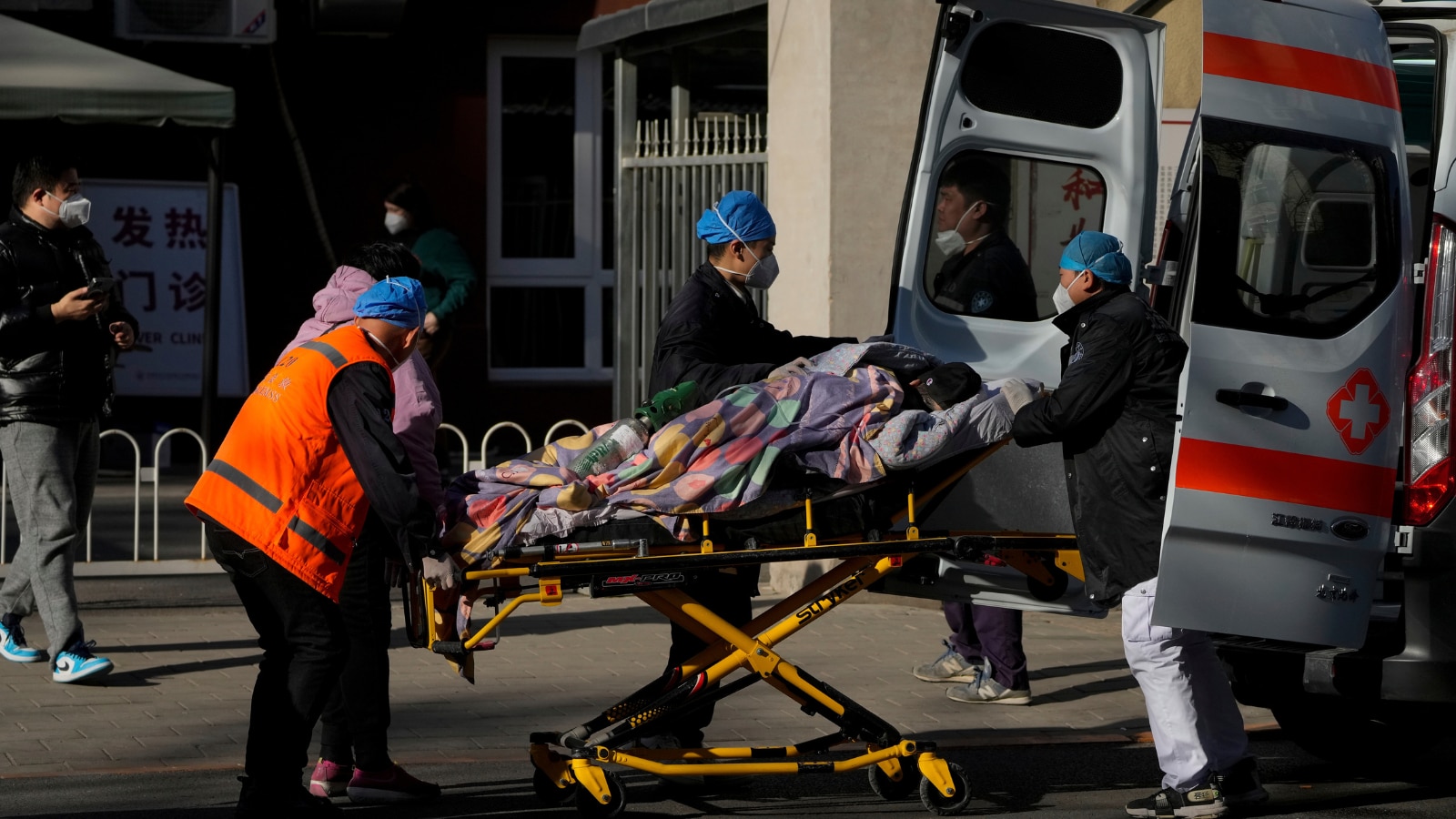Chinese Make Travel Plans as Beijing Dismantles Zero-Covid Rules
Chinese people, cut off from the rest of the world for three years by stringent COVID-19 curbs, flocked to travel sites on Tuesday ahead of borders reopening next month, even as rising infections strained the health system and roiled the economy.
Zero-Covid measures in place since early 2020 – from shuttered borders to frequent lockdowns – last month fuelled the Chinese mainland’s biggest show of public discontent since President Xi Jinping took power in 2012.
His subsequent abrupt U-turn on the curbs, which have battered the $17-trillion economy, the world’s second-largest, means the virus is now spreading largely unchecked across the country of 1.4 billion people.
Official statistics, however, showed only one COVID death in the seven days to Monday, fuelling doubts among health experts and residents about the government’s data. The numbers are inconsistent with the experience of much less populous countries after they re-opened.
Doctors say hospitals are overwhelmed with five-to-six-times more patients than usual, most of them elderly. International health experts estimate millions of daily infections and predict at least one million COVID deaths in China next year.
Nevertheless, Chinese authorities are determined to dismantle the last vestiges of their zero-COVID policies.
In a major step towards freer travel – cheered by global stock markets on Tuesday – China will stop requiring inbound travellers to go into quarantine from Jan. 8, the National Health Commission (NHC) said late on Monday.
“It finally feels as if China has turned the corner,” AmCham China Chairman Colm Rafferty said of the imminent lifting of the quarantine rule.
There are no official restrictions on Chinese people going abroad but the new rule will make it much easier for them to return home.
Data from travel platform Ctrip showed that within half an hour of the news, searches for popular cross-border destinations had increased 10-fold. Macau, Hong Kong, Japan, Thailand and South Korea were the most sought-after, Ctrip said.
Data from Trip.com showed outbound flights bookings were up 254% early on Tuesday from the day before.
China’s National Immigration Administration said on Tuesday that it would resume processing passport applications of Chinese nationals seeking to travel abroad and approving visits of mainland residents to Hong Kong.
China will also resume the implementation of a policy allowing visa-free transit of up to 144 hours for travellers. The extension or renewal of foreigners’ visas will also be restored, the immigration administration added.
Nevertheless, ordinary Chinese and travel agencies suggested that a return to anything like normal would take some months yet, given worries about COVID and more careful spending because of the impact of the pandemic.
Separately, once the border with Hong Kong reopens next month, mainland Chinese will be able to take BioNTech-made mRNA vaccines, seen as more effective than the domestically-developed options available on the mainland.
‘GREAT PRESSURE’
China’s classification of COVID will also be downgraded to the less strict Category B from the current top-level Category A from Jan. 8, the health authority said, meaning authorities will no longer be compelled to quarantine patients and close contacts and impose lockdowns.
But for all the excitement of a gradual return to a pre-COVID way of life, there was mounting pressure on the healthcare system, with doctors saying many hospitals are overwhelmed while funeral parlours report a surge in demand for their services.
Nurses and doctors have been asked to work while sick and retired medical workers in rural communities were being rehired to help, state media reported. Some cities have been struggling to secure supplies of anti-fever drugs.
“Some places are facing great pressure at hospital emergency wards and intensive care units,” NHC official Jiao Yahui told reporters.
While the Chinese economy is expected to see a sharp rebound later next year, it is in for a rough ride in the coming weeks and months as workers increasingly fall ill.
Many shops in Shanghai, Beijing and elsewhere have closed in recent days with staff unable to come to work, while some factories have already sent many of their workers on leave for the late January Lunar New Year holidays.
“The concern of a temporary supply chain distortion remains as the labour force is impacted by infections,” JPMorgan analysts said in a note, adding that their tracking of subway traffic in 29 cities showed that many people were restricting their movements as the virus spreads.
Data on Tuesday showed industrial profits fell 3.6% in January-November from a year earlier, versus a 3.0% drop for January-October, reflecting the toll of the anti-virus curbs in place last month, including in major manufacturing regions.
Authorities said they would step up financial support to small and private businesses in the hard-hit catering and tourism sectors.
The lifting of travel restrictions is positive for the economy, but strong caveats apply.
Japan Prime Minister Fumio Kishida said his country would require a negative COVID test for travellers from mainland China. The government would also limit airlines increasing flights to China, he said.
“International travel … will likely surge, yet it may take many more months before volumes return to the pre-pandemic level,” said Dan Wang, chief economist at Hang Seng Bank China.
“Covid is still spreading in most parts of China, greatly disrupting the normal work schedule. Loss in productivity is significant.”
Read all the Latest News here
(This story has not been edited by News18 staff and is published from a syndicated news agency feed)
For all the latest world News Click Here

